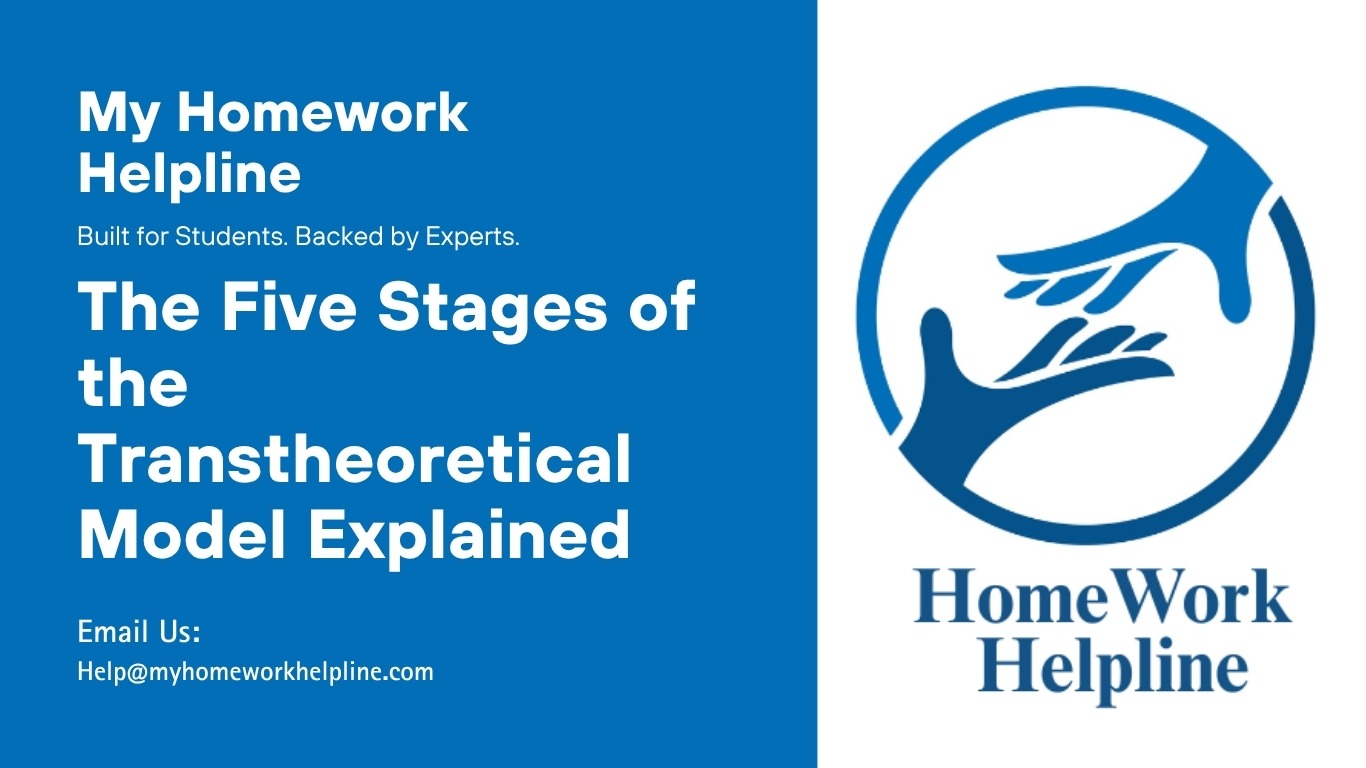Understanding the Transtheoretical Model of Change Essay Sample
Carlo DiClemente and James Prochaska developed the Transtheoretical Model (TTM) to assist in understanding the process of behavior change. The model has five stages. The first stage cited in the model is the pre-contemplation stage, where individuals may be in denial about the need for behavior change or that they must change their behavior and, hence, not consider behavior change. The next stage is contemplation, where people start considering changing their behavior as they realize that it’s problematic, weighing the pros and cons of behavior change. After this stage comes the preparation stage, where individuals actively plan to change their behavior via steps such as setting goals and seeking support; after this stage is the action stage, which involves active behavior change, and finally, the maintenance stage where, after successfully changing their behavior, the focus is long term sustenance of behavior change, by applying strategies to reinforce new patterns in behavior and prevent relapse (Burbank & Riebe, 2002).
Need help understanding psychology concepts like the Transtheoretical Model? Visit our Psychology Homework Helpline for expert guidance and personalized support.
Awareness of this information can support a parent seeking to change their parenting approach. Understanding these stages of change can help parents to weigh their readiness and willingness to change their approach to parenting. For instance, in the pre-contemplation stage, a father might not see why it’s essential for him to change his parenting, while in the contemplative stage, he might be considering different approaches to parenting even if he might not have taken active decisions toward parenting change (Burbank & Riebe, 2002). The TTM model also encourages the understanding of barriers to behavior change, and parents can use the model to see what motivations and challenges to behavior change they might have, such as cultural norms and lack of time. The TTM model also encourages parents to set goals based on the current stage. For instance, a father in the preparation stage can set goals such as seeking support from parenting professionals or learning new parenting strategies. The TTM model can also also enable parents to seek the necessary support. For instance, a father in the action stage can seek support resources such as support groups.
Professionals such as educators can use an individual’s TTM state to develop suitable interventions for the individual to change behavior. Different assessment tools, such as interviews, can be used to see what stage an individual falls under. Once the stage of change is determined, interventions can be planned for individuals in the pre-contemplation stage. These might be looking at raising awareness for the benefits of behavior change. This can involve showing individuals the consequences of not changing their behavior. For individuals in the contemplation stage, the interventions can help them to weigh the pros of changing their behavior and the cons of maintaining the status quo. They can also get resources such as articles to learn more about the behavior they want to change and the strategies they need to employ to effect the change. To support effective collaboration, professionals can use a client-centered collaborative approach, which builds trust with the client by listening to the concerns of the client actively and working with the client to come up with goals that align with their priorities and values. For instance, consider a person with a substance use disorder. Suppose the psychologist determines they are in the action stage. In that case, the interventions should help him maintain the behavior change and address barriers to such change by encouraging the individual to be committed to their goals, helping them develop coping skills to manage triggers, preventing relapse, and addressing any underlying issues that might be enabling addiction (Weinstein, 2010).
References
Burbank P. M. & Riebe D. (2002). Promoting exercise and behavior change in older adults : interventions with the transtheoretical model. Springer. March 22, 2024
Weinstein D. (2010). In search of a transtheoretical model and directed thinking interaction to reduce procrastination (dissertation).
(Burbank & Riebe, 2002)

